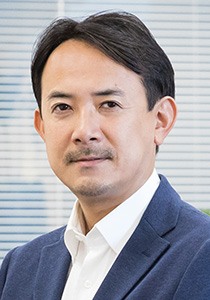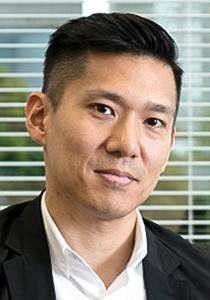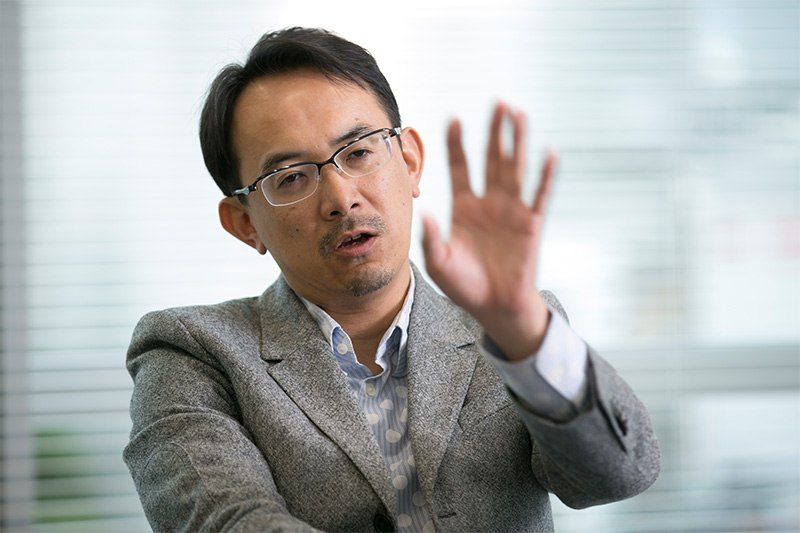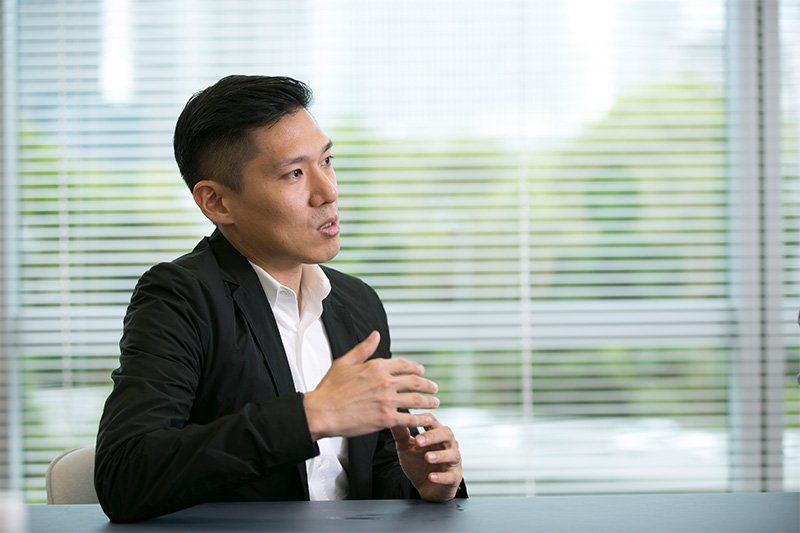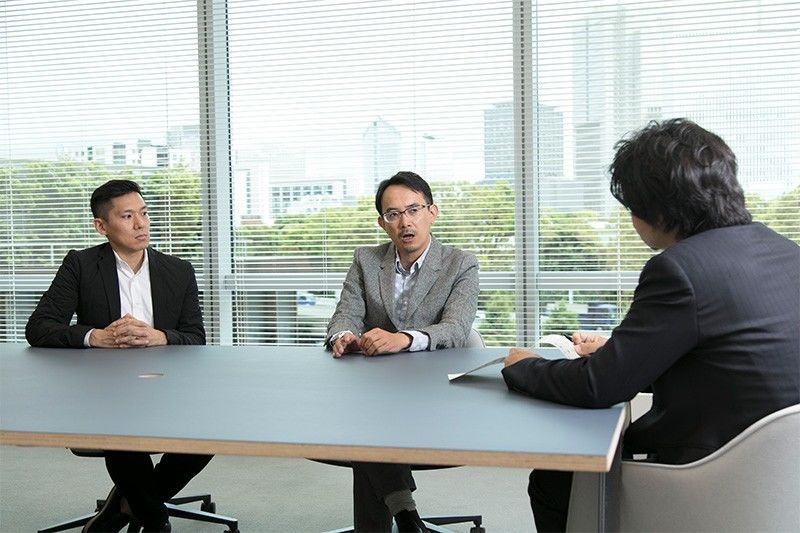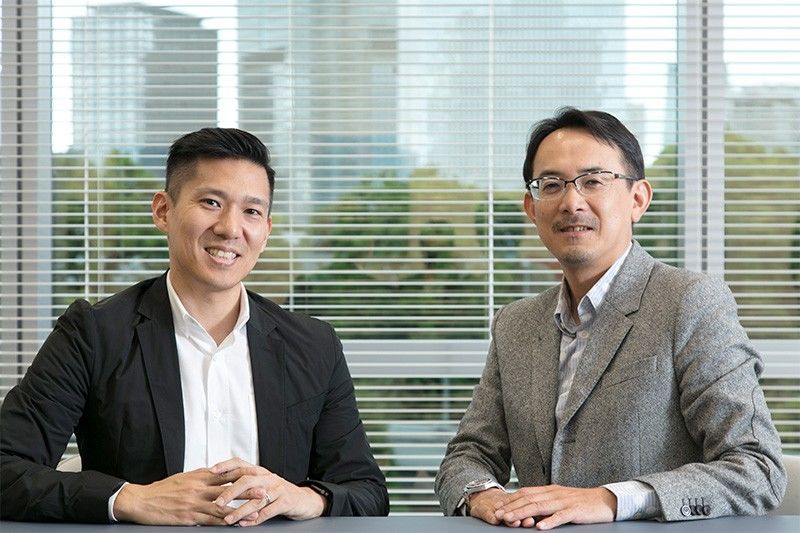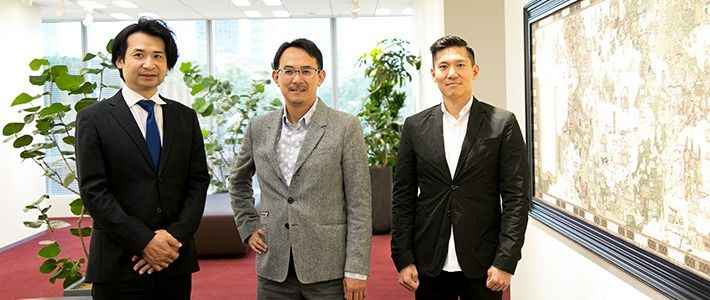
Japan’s Startup Villages 20 Years After Bit Valley
Economy- English
- 日本語
- 简体字
- 繁體字
- Français
- Español
- العربية
- Русский
Hundredfold Growth for 20 Companies in 20 Years
MASUZAWA SADAMASA Nearly twenty years have passed since the announcement of Bit Valley. The number of IT startups has grown considerably since then, as has the number of people who work there. These people created a community centered on the Shibuya area of Tokyo, which came to be called a “startup village.” I’d like to begin by looking back on how Japan’s startup villages began and developed.
KAWABE KENTARŌ Why do startup villages form? This is the important point. Based on my experience of participating in a startup village, I think there are three forces that bring these villages together. The first is when startup companies in the same area create a place for exchanging information and work. The second is when venture capital establishes a place for encountering companies to invest in. There continue to be many examples of this one. The third force is the location of a potential village in the vicinity of universities.
I think Bit Valley’s genesis lay somewhere between the first and second case. Nishikawa Kiyoshi’s Netage, launched in 1998, was a startup. We were also located in Shibuya and connected as peers in the space. Then Netage began to invest in startups, and other investors like JAFCO turned up.
Venture-capital-led examples are the New Industry Leaders Summit and the Infinity Ventures Summit. These cases were then followed by Industry Co-Creation and B Dash Ventures.
I imagine there were examples of manufacturing firms being established near engineering universities in the past. In the case of Internet startups, Keiō University founding the Shōnan Fujisawa Campus led to the creation of a startup community in the Fujisawa area of Kanagawa Prefecture. Since then, similar communities have formed in the vicinity of the University of Tokyo and Kyoto University.
MASUZAWA How many people would you say participate in Japan’s startup villages?
HORI SHIN’ICHIRŌ Some 600 to 800 people participate in the events held by IVS and B Dash. This figure, however, is the total only for entrepreneurs, investors, and representatives of large companies. If we include the people who work at these organizations, I believe the number is several tens of thousands of people.
KAWABE There were twenty to thirty startups at the beginning of Bit Valley. Now there are 2,000 to 3,000 startups.
A Startup-Friendly Ecosystem
MASUZAWA Now that 20 years have passed, I believe an ecosystem has developed where entrepreneurs become investors and cultivate new startups.
KAWABE Currently we see people exiting the business they started to become angel investors or to launch or invest in venture capital firms. Yamada Shintarō, the CEO of Mercari, is a typical example. The startup community is becoming an incubator of new businesses where entrepreneurs exit one startup to launch another or where they take their ideas public to raise funds. The startup community is also useful for acquiring talent and is taking the shape of an ecosystem.
 Mercari CEO Yamada Shintarō (left) with Prime Minister Abe Shinzō at the award ceremony for the Fourth Nippon Venture Awards on February 26, 2018, at the Prime Minister’s Office. (© Jiji)
Mercari CEO Yamada Shintarō (left) with Prime Minister Abe Shinzō at the award ceremony for the Fourth Nippon Venture Awards on February 26, 2018, at the Prime Minister’s Office. (© Jiji)
In the past, people wanting to start a business would either have their parents provide the money or borrow it from a bank. Now we can start businesses with risk money. This is a completely different situation.
MASUZAWA Japan’s venture villages are still small compared to those in the United States. They may be smaller by an order of magnitude.
HORI This is a major contrast. I think the reason is the difference in unlisted and listed companies. The total market value of Internet-related companies listed on the Tokyo Stock Exchange or Mothers is not that large. Since the companies that led the way are not so large, companies that follow don’t tend to become big either.
KAWABE In other words, the number of challengers remains low. The total market value of companies taking on challenges and succeeding is small. As a result, investment funds are also small.
HORI There’s also a difference in the population targeted by Japanese and US companies. The United States can deploy services globally, but services developed in Japan are nearly all intended for the domestic market, meaning that earnings are also limited. US investors are currently bypassing Japan and investing in China, India, and Southeast Asia.
Connecting Through the Internet and in the Real World
MASUZAWA Whether IVS or ICC, venture capital events (conferences) for entrepreneurs in Japan are basically invitation only, and they have the impression of being closed events for people who already know each other. What should entrepreneurs who want to join the community do?
HORI While this depends to some extent on how startup villages are defined, they aren’t all closed communities. Currently in Ōtemachi, Roppongi, and Shibuya, startup-related events are held on a daily basis. They may be about Bitcoin, AI, the internet of things, the marketplace, or other themes. By participating in such events regularly, it should be easy to join such a community.
Even so, an entrepreneur’s trustworthiness, creditworthiness, and track record are important considerations when venture capital firms make investment decisions. The hurdles may diminish somewhat if you can be introduced by someone already well known in the industry.
KAWABE Since you can readily get acquainted through the Internet, basically these communities are completely open. Agreements to become partners are sometimes reached just through Twitter. In this process, there will be the step of meeting in person and of establishing close relationships in the real world. So, I don’t think these communities are closed as a whole. There are young people who claim you can access venture capital through the Internet without even attending conferences.
MASUZAWA So, if the language barrier can be overcome, can you say that people from abroad can fully participate in Japan’s startup community?
KAWABE That shouldn’t be a problem. However, Tokyo being an extremely large city may be a special factor. Day and night something interesting is happening. If you live in Tokyo, where you can attend these events, and can speak Japanese to some degree, you should be able to participate openly.
Needed: An Environment for New Challenges
MASUZAWA If the expression “Things go easier once you know each other” is seen as an advantage, what are the ways you would like Japan’s startup community to develop going forward? Former PayPal employees known as the “PayPal mafia” have emerged in the United States. I believe such companies as Yahoo Japan are likely to emerge as a source of future startup talent in Japan.
KAWABE Building a track record will be important. In the early years of a startup, there is a strong element of chance in whether the business will work out. While a business plan and a budget plan are necessary, in the end the decision to invest becomes a matter of risking it on the person. When an ecosystem is in place, it will be possible to take on new challenges repeatedly and to build a track record, which entrepreneurs, venture capital, and angel investors can refer to in deciding whether to proceed with the business. The reproducibility of success will also increase.
HORI One way Japan’s ecosystem lags behind that in the United States is the few examples of people who start one business, exit, and start another. I see Yamada Shintarō, who will soon list Mercari on the stock exchange, as a possible role model. Mitsumoto Yūsuke launched Stores.jp, then started Bank Inc., and is assuming new challenges. Should such young people who start businesses and take on new challenges increase, this will bring about a better startup community.
The example of Katagiri Takanori is interesting. He’s the former president of the startup Pixiv, a highly popular website both in Japan and abroad. He was then scouted unexpectedly by DMM, a much larger company, where he became president. While Pixiv is a great startup, DMM is reported to have the highest earnings among all of Japan’s Internet-related companies. There are still too few companies in Japan that engage in such dynamic hiring and management practices. Should such trends accelerate, industry itself will likely grow stronger.
Venture Capital’s Large Presence
MASUZAWA Who are the key players in Japan’s startup community?
KAWABE The first person to mention is Nishikawa Kiyoshi. Netage and Digital Garage were always there in the early days, with SoftBank positioned slightly differently. These three companies are what gave rise to Japan’s Internet industry. While Nishikawa always had a strong presence, the actual key players in the formation of a startup community were people like Hayashi Kaoru of Digital Garage and Itō Jōi. Although he wasn’t involved personally, Son Masayoshi contributed enormously to the community.
Venture capital arrived on the scene midway. Globis Capital, led by managing partner Hori Yoshito, became involved in NILS. Out of this came figures like CEO Kobayashi Masashi of ICC Partners and Ono Hirofumi, managing partner of Infinity Ventures LLP. There’s also Watanabe Hiroyuki, president and CEO of B Dash Ventures. Another person is Matsuyama Taiga, a managing partner at East Ventures who has consistently believed and invested in young people. These are the people who established the startup community. Matsuyama was heavily involved in Son’s launching of NASDAQ Japan and did much to prepare an environment for venture capital exits.
 Netage founder Nishikawa Kiyoshi (left, photograph from 2006) and SoftBank Group CEO Son Masayoshi . (© Jiji)
Netage founder Nishikawa Kiyoshi (left, photograph from 2006) and SoftBank Group CEO Son Masayoshi . (© Jiji)
MASUZAWA Hearing this history, it seems that investors had a fairly significant presence.
KAWABE The role of supplying growth funds matched the needs of the times. Startups were filled with enthusiasm in the 2000s when large companies lost interest in investing. Since startups can execute their business with a modest amount of funds, they were a reasonable investment target for venture capital.
HORI Matsuyama Taiga, JAFCO, and Globis Capital Partners continued to make investments during this period and played a major role in the growth of startups. The same can be said for Netage.
Outstanding Young Entrepreneurs
MASUZAWA What we seem to be describing is a pattern where a startup village develops in Japan with the support of venture capital. Growth then snowballs from the virtuous circle created by entrepreneurs emerging from this village to become investors.
HORI A recent new trend is the growing number of university students who work as interns at startups and who start their own businesses before graduating.
KAWABE So they’re learning the method during their internship. Years before it was said in Japan that the best students joined the bureaucracy, wihle lesser students joined large companies. The brightest did not become entrepreneurs, as in the United States. This situation has changed completely in Japan. Young entrepreneurs are becoming better and better each year. Seeing such people makes me think that Japan’s startup villages have a promising future.
(Based on an interview that took place on May 9, 2018, at the Yahoo Japan head office in Kioichō, Tokyo. Originally published in Japanese on June 19, 2018. Banner photo, left to right: Interviewer Masuzawa Sadamasa, Kawabe Kentarō, and Hori Shin’ichirō. The large picture on the right illustrates the history of the Internet, which was created to commemorate the twentieth anniversary of Yahoo Japan going public. Interview photographs © Kawamoto Seiya.)
